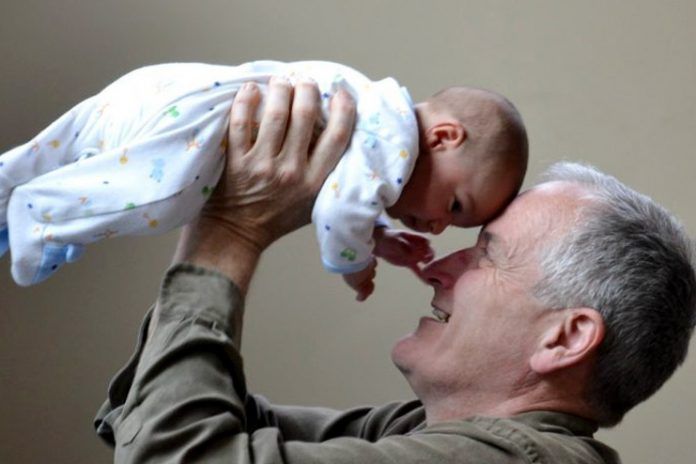Affiliate Disclaimer
Some links in this article are affiliate links. We may earn a small commission if you make a purchase through these links, at no extra cost to you. We only recommend products we find useful to our readersFollowing an extensive and detailed study documenting the live births In United States over a decade and have linked that babies of older fathers are at a heightened risks of developing birth risks in children including seizures and low birth rate.
The new study (R) conducted by the researchers from the Stanford University School of Medicine and emphasizes the health risks imposed on the new born baby as well as the pregnant mothers by increasing the risks of diabetes.
Michael Eisenberg, MD, associate professor of urology stated that majority of the researchers tend to stick to evaluating the maternal factors that could possibly contribute to the associated risks of the problems associated with childbirth but this salient study describes the impacts the father’s age has on not just the baby but also on the health of the mother.
The collected data from over 40 million child births over a decade has significantly showed that the babies born to the fathers who are of an “advanced paternal age” (more than 35) were exposed to a higher risk of adverse birth outcomes and might even need ventilation after birth. It was further exclaimed that the more the father’s age, the more were the risks associated with birth risks in children. 14% of child birth with fathers aged over 45 was most likely going to be premature and it was witnessed that 28% of child birth with fathers aged over 50 were more likely to be admitted to the neonatal intensive care unit.
Eisenberg further clarified that the results of the study shouldn’t majorly influence any life plans just now, primarily because of the fact that the risks as of now are primarily low. He further went on to state that these findings are more like an ammunition for the people planning to extend their family educating them that it is best to adhere to the optimum age for a healthier child birth.
After The Age Of 35
The pivotal author of the study, Michael Eisenberg also conducted a study in 2017 stating about the consistent rise in the number of older men fathering kids. While the percentage back then was only a mere 4%, the same has raved up to 10% in just a year. These shifts have been witnessed around the entirety of the United States, across the race strata and this kind of happening is being witnessed everywhere you look. This was the primary reason why it was important to trace and showcase the important aspects concerning the health ramifications of advanced paternal age.
The researches kept a track of over 40 million child birth in over a decade. The collected data managed under the Centers for Disease Control and Prevention and the National Center for Health Statistics had all the salient information arranged with respect to different age groups – below 25, 25-34, 35-44, 45-55 and above 55. They ensured to keep a number of factors controlled that could be influenced by the father’s age and the child birth like race, smoking history, marital status etc.
Significantly, it was found that once the fathers hit an age above 35, there are a number of associated birth risks because of the fact that with every year of the age, men experience at least 2 DNA mutations in the sperm which can have significant birth risks in children as the age advances.
Apart from that, yet another shocking finding stated by Eisenberg was the fact that there was also an associated with the paternal advanced age with the heightened risks of the mother developing diabetes during the pregnancy. In comparison to the fathers in between the age group of 25-34, the partners of the father over the age of 45 has 28% more risks of developing gestational diabetes. While there is no clear explanation to why the same could possibly happen, it is believed that the placenta could be a potent reason behind the problem.
Moving Ahead
Now that Eisenberg and his colleagues have more or less have developed a rough assumption concerning the associated risks of advanced paternal age with child birth, he wants to delve into the various population cohorts to solidify his assumptions concerning the problems and try and find a basis behind the biological mechanisms affecting the process.
According to the lead author of the study, he believes that have an insight into the paternal role in the child birth will actually give a better outlook into the child as well as the health of the mother. While the heightened birth risks in children with advanced paternal age is something quite lower on the risk percentage at the moment, the same might inadvertently increase with the passing days which is why it is important to conduct more research in this aspect for better understanding.




















